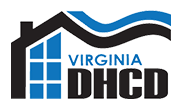Appalachian Regional Commission POWER grants will support substance abuse recovery, broadband expansion, and economic development initiatives
Governor Ralph Northam today announced that Virginia will receive six grants totaling more than $3.9 million from the Appalachian Regional Commission’s (ARC) Partnership for Opportunity and Workforce and Economic Revitalization (POWER) Initiative. The funding will support recovery health programs, broadband infrastructure expansion, workforce development, natural gas line improvements, and rural tourism and job growth efforts.
“The Appalachian Regional Commission has long been a valuable partner in our efforts to build a strong and resilient economy and address the needs of our coal-impacted communities,” said Governor Northam. “These investments will improve the lives of individuals in Appalachian Virginia by making critical infrastructure improvements, expanding access to broadband, helping people navigate the substance abuse recovery process, building a sustainable and thriving workforce, and creating new opportunities for community and economic development.”
The ARC POWER Initiative is a congressionally funded program that targets federal resources to help communities and regions that have been affected by job losses in coal mining, coal power plant operations, and coal-related supply chain industries due to the changing economics of America’s energy production. This announcement is part of $43.3 million awarded to 51 projects to support economic diversification in the Appalachian region. The projects will attract $110 million in leveraged private investment, as well as a match of $81.5 million in public and private funds.
“From health care and infrastructure to community and workforce development, these projects have the ability to transform the economic landscape of Virginia’s Appalachian communities,” said Secretary of Commerce and Trade Brian Ball. “This ARC funding goes hand in hand with the region’s goal to diversify its economy while creating vibrant communities with a high quality of life for residents and businesses alike.”
The following projects will be awarded ARC funding:
Henry County, in partnership with the Harvest Foundation and Southwest Virginia Gas Company, will receive $1,500,000 for the Site Improvements at Commonwealth Crossing Business Centre (CCBC) project, which will complete a steel natural gas pipeline from the Patriot Line to the CCBC and associated facilities. CCBC’s access to natural gas will strengthen this key future business site and support the County’s transition to a more diverse manufacturing economy able to incorporate aviation, automotive, food processing, and advanced film production sectors. The project will serve a facility that has already created over 200 jobs and will enable more companies to move jobs into CCBC and the surrounding area.
The New River/Mount Rogers Workforce Development Area Consortium Board in the City of Radford will receive $1,494,000 for the Pathways to a Strong and Healthy Region project, which will focus on unifying the resources and services that support individuals with substance abuse disorder (SUD) to create a recovery-ready region. Through partnerships and support from Eagles Nest Regeneration and Ballad Health, the project will serve 350 workers in recovery and 30 workers in the health care and human services sectors, as well as 150 businesses. The project will help create continuity among support services, sustain long-term recovery for individuals, and scale efforts for greater impact across the community, resulting in a strong regional recovery ecosystem.
St. Mary’s Health Wagon (The Health Wagon) in Wise County will receive $793,500 for the Southwest Virginia Medication-Assisted Treatment Services Project, which will establish a substance abuse treatment program that complements the region’s existing services. Southwest Virginia has been hit hard by the downturn in the coal economy and the concurrent substance abuse crisis. Community organizations have been leading the effort to identify and implement services that prevent and treat SUD issues and are seeking to offer an alternative to existing medication-assisted treatment services. The Southwest Virginia Medication-Assisted Treatment Services Project is expected to create four jobs and serve 75 patients in its first year of operation with the expectation that it will serve approximately 150 patients each year in the future.
LENOWISCO Planning District Commission, which comprises the counties of Lee, Scott, and Wise, and the city of Norton, will receive $50,000 for the Tri-State Broadband Infrastructure Feasibility Study, which will create a plan to establish a fiber-optic network in a 13-county region of Kentucky, Tennessee, and Virginia. Currently, only 64 percent of households in this service area have access to high-speed internet. By convening stakeholders and determining the region’s critical Network Access Points, the LENOWISCO Planning District Commission will connect households and businesses to other nearby regional networks and establish a fiber-optic network, allowing the multi-county region to be marketed for data center development.
The Center for Rural Virginia is receiving $39,755 for the Virginia Rural Leaders Institute (VRLI), which will focus on strengthening civic leadership development for rural communities across the Commonwealth by convening community leaders over a series of four sessions in the region. The project will deliver a robust curriculum that includes leadership, community, and economic development competencies for leaders throughout Southwest Virginia. The first VRLI will graduate 30 leaders and create a statewide rural network to strengthen rural development at the local level.
The New River Valley Regional Commission will receive $32,940 for the New River Water Trail Expansion Strategic Plan. This project will formulate a strategy to cultivate the natural assets around the New River to increase talent attraction, tourism, and job growth by improving river accessibility and trail signage, providing a market analysis of user groups and potential partners, and designing a marketing strategy for the water trail. The New River Water Trail Expansion Strategic Plan will also develop an expansion model that can be applied throughout Virginia and in surrounding Appalachian states.


